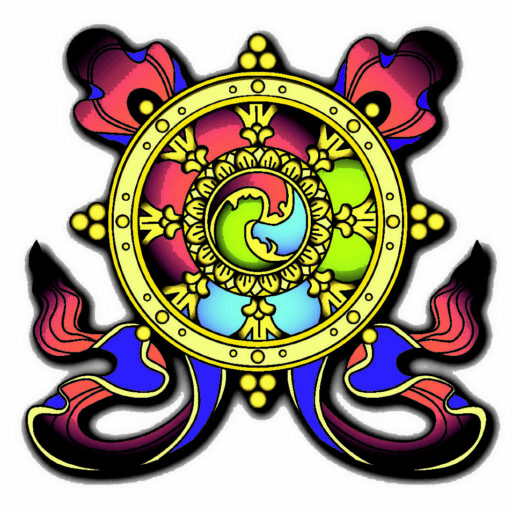by Rosie McKew
In this article, one of Geshe Loden’s senior students, Rosie McKew, was invited to explore one of her favourite teachings from the ‘Path to Enlightenment in Tibetan Buddhism’, Geshe Loden’s authoritative reference book.

Chapter 14 in Venerable Geshe Loden’s Path to Enlightenment text addresses delusions, which is likely a pertinent topic for us all.
From the Buddhist perspective, all the sufferings of cyclic existence are caused by delusions (contaminated/negative minds), and cyclic existence itself is propelled by karma and delusion.
The Buddhist saint, Shantideva, is quoted from his text Engaging in the Bodhisattva Deeds, on page 432 of The Path to Enlightenment:
Enemies such as hatred, craving and so on
Have no arms, no legs and so forth.
They have no courage and no intelligence,
But, nonetheless, they have made me their slave.
While dwelling within my mind,
At their discretion they cause me harm.
To endure that without anger
Is not right, and is despicable of me.
It’s extraordinary how delusions can cause us so many problems, as these states of mind are so ephemeral. Unlike someone physically attacking us, delusions have no physical body or weaponry, but they still do a pretty good job of destroying our peace of mind, and often indirectly or directly causing us to harm others as well.
Delusions are also not particularly smart (or courageous!), because when we apply logic to investigate what the delusion is telling us, it is possible to get the delusion to temporarily (or permanently) go up in a puff of smoke! This isn’t necessarily easy and comes with significant practice.
The hardest of the delusions to crack is the self-grasping ignorance that views the self and phenomena to be inherently existent. Without overcoming this delusion, it is impossible to permanently remove the other delusions.
Why are we slaves to these deluded states of mind?

Perhaps we can think of this as being like having our own personal movie going on in our ‘head’, in which we star as the lead actor (of course!), but unbeknown to us, we are also (in the bigger Buddhist picture) the writer and director. If we let the movie play, without questioning or interrupting the story line, we become complicit in causing our own suffering, and the inevitable impact on others.
Shantideva indicates this in the verse by saying ‘To endure that without anger is not right and is despicable of me’. He uses the word ‘anger’ to indicate the strength with which this false narrative deserves to be upended!
How we address the problem of the delusions
All Dharma practices are antidotes to the delusions. The recommended process is to listen, think, then meditate on the subjects in the Path to Enlightenment text, to help us gradually lessen the delusions and their impact, with the final goal being to remove them altogether.
Shantideva emphasises in a subsequent verse that mindfulness is the key, and that Buddha advised that without this, higher practices are meaningless. In this case, mindfulness refers to mindfulness of the mind and being aware of our thoughts and emotions as they arise. This enables the possibility of stopping the negative mind or working with the story to minimise the harm to ourselves and others.
However, we need to be skilled at doing this, because inappropriate attention to the delusions can cause them to become stronger and persist longer. Sometimes it is best to just watch them play out and fade, without making them bigger through reaction or rumination. Or we can try distracting ourselves, so the mind settles down or picks up a new storyline.
Mindfulness of mind meditation practice

There is also a formal sitting meditation, known as mindfulness of mind practice, or mahamudra practice*. In the initial stages of this meditation, we practice resting our mind in awareness and noticing the thoughts and emotions that arise and fall away, aiming not to cling on to them.
This technique helps us see the transient nature of thoughts and emotions, and to see the habits and patterns of our own mind. Doing this practice regularly will enable us to be more mindful of our thoughts and emotions in daily life, and to be less of a slave to our delusions.
When trying to manage our delusions, we need to remember to be kind and compassionate with ourselves and to use whatever Dharma or other tools we have at our disposal to support ourselves, including counselling support if needed.
May all beings very quickly be free from delusions and the suffering caused!
* The Tibetan Buddhist Society Melbourne will be holding a mahamudra retreat from 19-25 January 2025, led by Les Sheehy from the Perth centre. Information and registration details will be coming out soon.
Enjoyed this? Read similar – Geshe Loden: reflections on rejoicing by Jean D’Cruz
